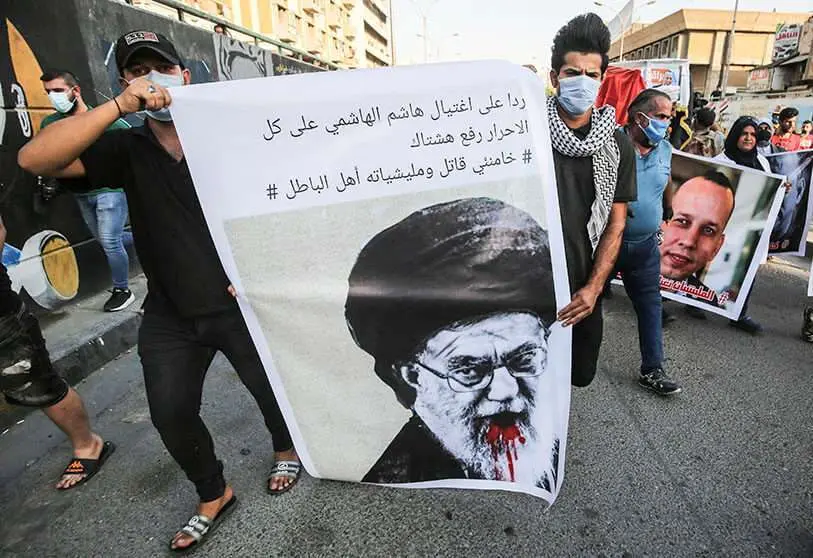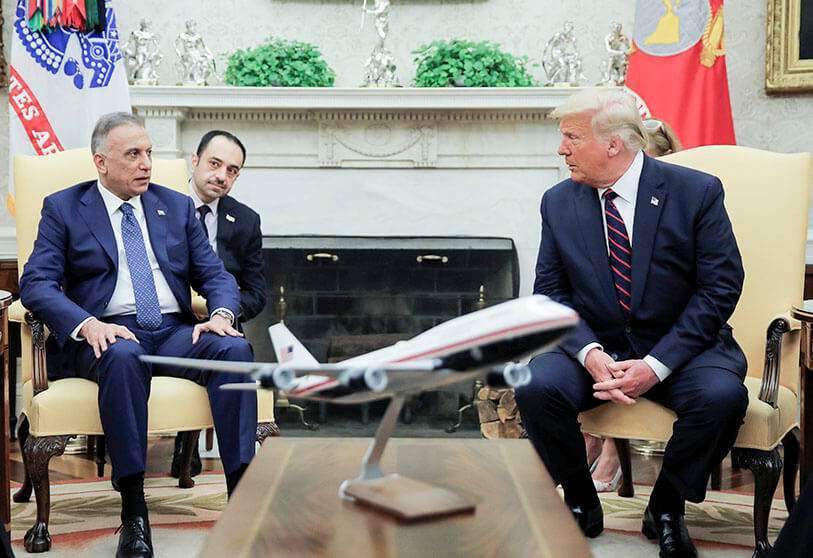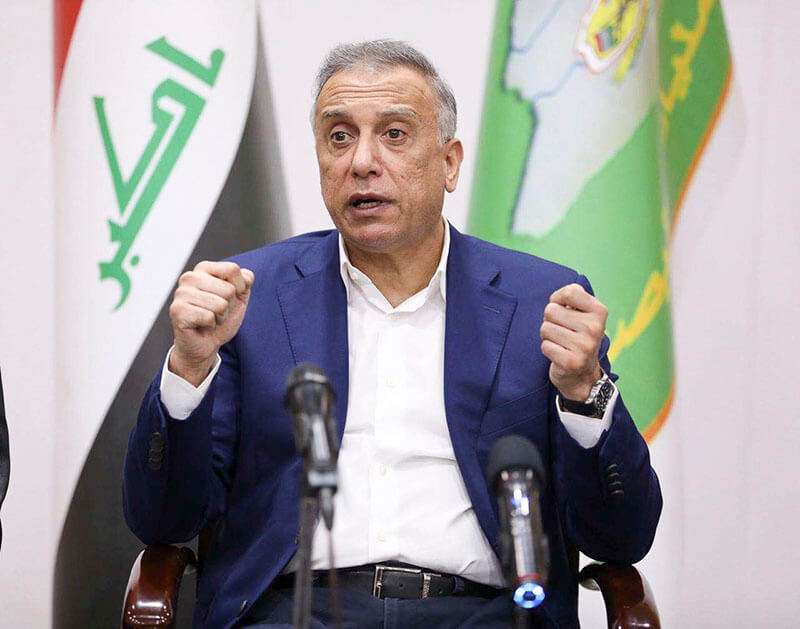Iraq tries to maintain its reformist line despite Iranian attacks

Since the elimination of Abu Mahdi al-Muhandis, the Iraqi military commander who led the paramilitary alliance of the People's Mobilization Forces (PMF), Iraq has not been able to find political stability that can resolve the various open fronts that the country has at its disposal. In mid-April, Iraqi President Barham Saleh entrusted the task of forming a government to the former head of the intelligence services, Mustafa al-Kazemi.
Baghdad is experiencing a context of economic, social and political crisis. The state's coffers depend on oil, and the fall in the price of crude oil has aggravated the economic problems and the state violence used to suppress the mass demonstrations that broke out in October; all this has led the Iraqi population to have minimal confidence in the government. Marked by war, Al-Kazemi aims to carry out reforms to revive its battered economy. The new prime minister has promised to control rebel militias, fight corruption and carry out a hoped-for restructuring after years of armed conflict. However, senior Iraqi officials and analysts have stressed, according to the news agency AFP, that there are several armed actors linked to Iran who are doing their utmost to destabilise the country.
"Every time these groups see us approaching their military or economic interests, they launch rockets or propaganda campaigns to distract us," said a senior Iraqi government official.
The violence was already escalating before Al-Kazemi travelled to Washington last month to meet US President Donald Trump. "We will leave soon. We have very few soldiers in Iraq, but we are here to help," Trump said. The US plan is to withdraw its forces from Iraq within three years, but, in Trump's words, "we will be there to help the Iraqi people.
.

On Tuesday evening, according to the French news agency, a bomb hit a supply convoy heading towards an Iraqi base where US troops are deployed and killed a member of the Iraqi security forces. On 3 September, an attack targeted the Baghdad headquarters of the US-British security company G4S. According to AFP, an Iraqi intelligence official said a drone dropped an explosive charge on the building. No one claimed responsibility for the attack, but Tehran-backed groups had accused G4S of complicity in the January U.S. drone attack that killed General Qassem Soleimani in Baghdad.
However, the attack on an aid convoy in the city of Mosul that injured a UN worker was taken up by a faction that identified itself as part of the "Islamic Resistance," a general term for pro-Iranian factions, which accused the UN of using its convoys to transport US spies. These are not the only attacks in this escalation of violence. Half a dozen factions have made similar threats under the banner of "Islamic resistance".
Iraqi intelligence officials said that at least "five groups, including Kataeb Hezbollah, Asaib Ahl al-Haq and others, are at the root of the recent instability throughout the country". These groups belong to the Iraqi family Hashed al-Shaabi, a network close to Iran. But the continuous attacks by pro-Iranian militias against the Iraqi government of Al-Kazemi have not only taken the form of convoy bombings. Unconventional media such as the social network Telegram have been used by these groups to issue mocking warnings about the attacks before they occur.
.

Government spokesman Ahmad Mulla, who responded to the attacks, said they did not seek direct confrontation with these groups. "We are rather seeking to exhaust their financial resources by targeting the border crossings" used for smuggling from Iran, he told AFP. A few days ago, Al-Kazemi formed an anti-corruption council, authorising elites in the anti-terrorist service to arrest officials once considered untouchable.








